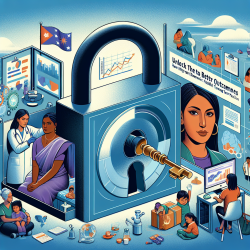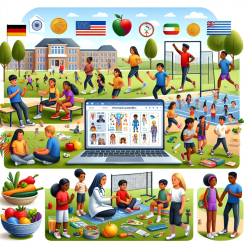Introduction
As practitioners dedicated to improving child outcomes, we often focus on the immediate environment of our young clients. However, recent research on the health and well-being of migrant domestic workers (MDWs) in the Western Pacific Region offers valuable insights that can enhance our understanding of broader social determinants affecting health outcomes. This scoping review, conducted by Chan et al. (2024), synthesizes a vast body of literature to identify key health outcomes, social determinants, and interventions for MDWs. By integrating these findings into our practice, we can make data-driven decisions that not only benefit our clients but also contribute to the well-being of their families and caregivers.
Key Findings from the Research
The scoping review highlights several critical health outcomes and social determinants affecting MDWs:
- Health Outcomes: MDWs often face a range of physical and mental health challenges, including chronic conditions, work-related injuries, and mental health issues such as anxiety and depression.
- Social Determinants: Factors such as poor living and working conditions, limited healthcare access, financial instability, and social stigma significantly impact MDW health.
- Interventions: The review identifies a scarcity of effective interventions, particularly those targeting structural determinants of health.
Implications for Practitioners
Understanding these determinants can enhance our practice in several ways:
- Holistic Assessment: By considering the broader social and economic contexts of our clients' families, we can develop more comprehensive intervention plans.
- Advocacy and Support: Practitioners can advocate for policies that improve living and working conditions for MDWs, thereby indirectly benefiting the children in their care.
- Collaboration with NGOs: Partnering with community organizations can provide additional resources and support for MDWs and their families.
Encouraging Further Research
The review underscores the need for more research, particularly in under-studied regions and among diverse MDW populations. Practitioners can contribute to this effort by:
- Participating in Research: Collaborate with researchers to explore the impact of social determinants on child outcomes in MDW families.
- Sharing Insights: Document and share successful strategies and interventions that address these determinants in your practice.
By integrating these insights into our practice, we can make informed, data-driven decisions that enhance outcomes for children and support the well-being of their families and caregivers. To read the original research paper, please follow this link: The social determinants of migrant domestic worker (MDW) health and well-being in the Western Pacific Region: A Scoping Review.










